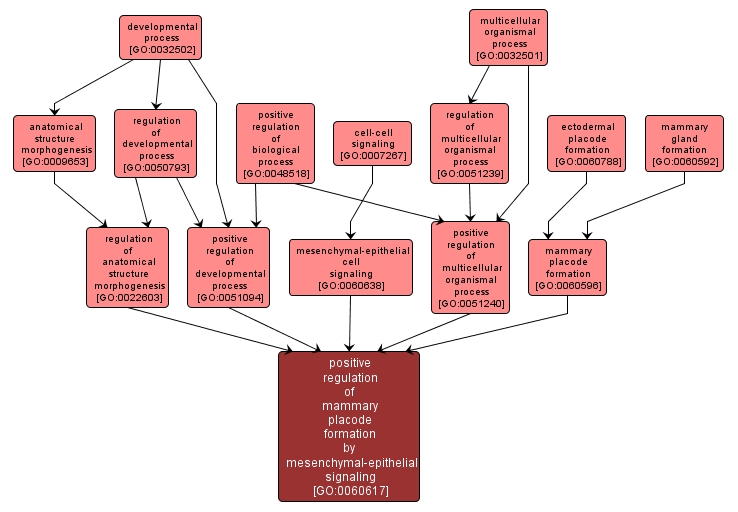GO TERM SUMMARY
|
| Name: |
positive regulation of mammary placode formation by mesenchymal-epithelial signaling |
| Acc: |
GO:0060617 |
| Aspect: |
Biological Process |
| Desc: |
Any process that initiates the formation of a mammary placode through a mechanism that mediates the transfer of information from a mesenchymal cell to an epithelial cell resulting in the epithelial cell adopting the identity of a cell of the mammary placode. |
|

|
INTERACTIVE GO GRAPH
|














